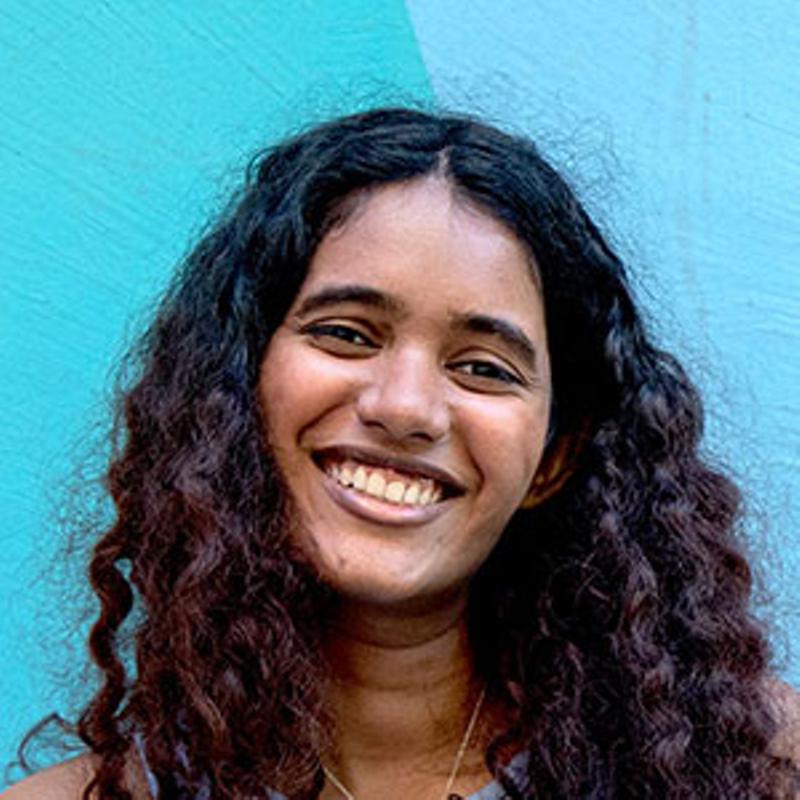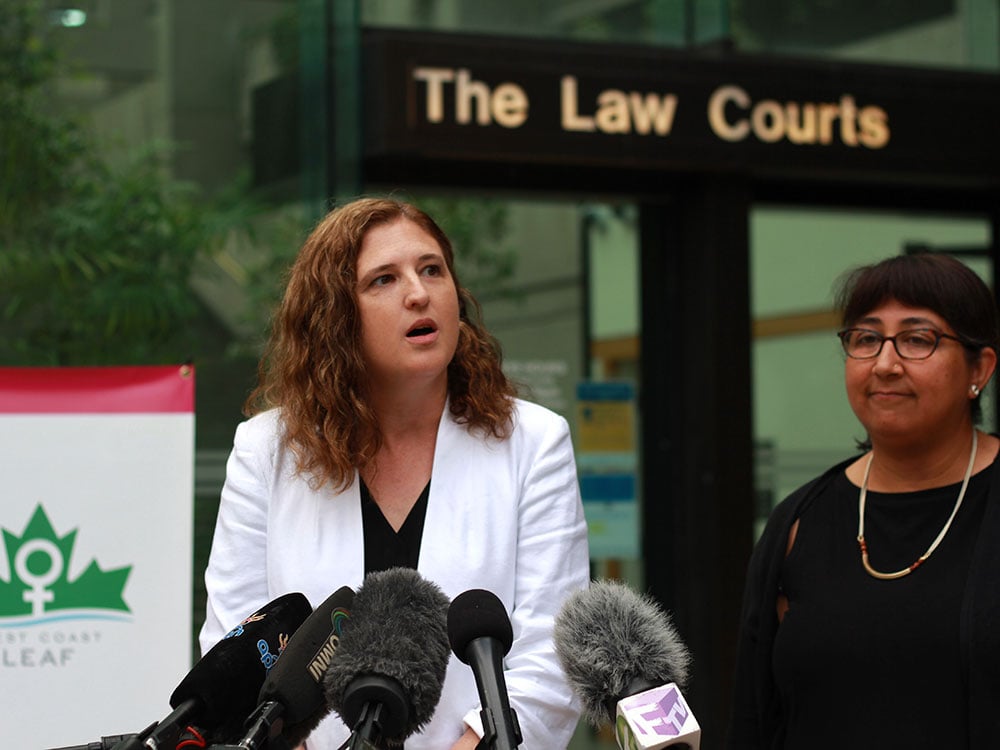“We don’t ask how many people deserve to have their broken bones fixed, so why do we talk about access to the family court in a way that suggests it is optional, or that we’re OK with it being out of reach for most of us?” asked Raji Mangat, the executive director of West Coast LEAF.
West Coast LEAF is representing the women’s advocacy organization Single Mothers' Alliance in a constitutional challenge about family law legal aid against the province, and Legal Aid BC, which is currently being heard in B.C. Supreme Court.
Initially filed in 2017, the case argues that the province and Legal Aid BC are failing to provide adequate family law legal aid to women leaving abusive relationships.
Legal Aid BC’s annual service plan report for 2020-21 shows that just over half of people who seek legal representation through legal aid for family law matters get it. The rate for people seeking legal aid for other reasons is higher. Over 80 per cent of people seeking legal aid for criminal cases apply successfully, for example.
West Coast LEAF and SMA note that these numbers don’t reflect the needs of women who require legal aid but don’t bother applying at all.
“We’d like to see that all of those who need to access legal remedies through the court system to make themselves and their kids safe should be able to access that support,” Mangat said.
The family court establishes decisions around divorce, child custody and access, financial support and other related matters.
According to the Legal Aid BC website, a one-person household’s monthly income must be below $1,740, and a two-person household’s monthly income must be below $2,430 to qualify for legal aid. The one-person threshold is under the low-income cut-off for households in Metro Vancouver, according to Statistics Canada, and the two-person threshold is just over the low-income cut-off.
Women who do not qualify for legal aid and cannot afford a lawyer often attempt to navigate the legal system themselves. Alternatively, Mangat said, some women go into personal debt.
“It’s hard to estimate an average for how much it costs if you hire a lawyer at private rates to represent you in your family law case,” she said. “It can be in the tens of thousands of dollars, for sure, and I’ve heard of people spending $40,000 and taking on personal debt to finance their trial.”
For many people fleeing violence in their relationships, the court system is the only way to piece their life back together, Mangat said.
“There's very credible research about how for a lot of women it's not like the violence ends when you leave the relationship. Some people even use the court system itself as a tool to abuse people,” Mangat added.
Legal Aid BC declined to comment on the case while it was before the courts.
The attorney general and Ministry of Housing also declined to comment. Instead, a spokesperson provided information on recent funding and family law changes via email.
According to the ministry, the province is working to modernize the Family Law Act so it works better for families today. The early resolution model, for example, which is currently being used in Victoria and Surrey, provides an opportunity for early resolution for family violence in cases proceeding to provincial court on family law matters. This had frequently been identified as a gap in the existing system, the ministry’s statement said.
The attorney general provides significant out-of-court assistance to families experiencing separation and divorce through information, referrals, assessment and consensual dispute resolution at family justice centres and justice access centres, free parenting education courses and other services such as child support re-calculation and family maintenance enforcement, the statement continued.
The roots of what West Coast LEAF and SMA identify as today’s inadequate legal aid service can be traced back to 2002, according to Legal Aid BC’s website, when the government “announced severe budget cuts and fired the LSS [Legal Services Society] board of directors.” Offices were closed and staff were laid off at that time, the website reads.
In 2018, after receiving an increase in funding worth $34.2 million, Legal Aid BC expanded its services, including by opening nine parents legal centres “to help families at risk of their children being removed, or whose children had been removed by social workers as a result of concerns for their safety.”
In 2022-23, the provincial funding for legal aid services increased to $114.35 million. In 2017-18, legal aid services were funded at $80.17 million.
But legal aid financial guidelines remain tied to the “poverty level.”
“We were seeing that the province’s legal aid funding system was getting further and further away from protecting people, which is what it is supposed to be doing,” Mangat said. “What's resulted is a regime that consistently is failing people and harming people.”
In 2018, the provincial government unsuccessfully tried to have the claims in Single Mothers’ Alliance v. B.C. struck out, arguing they could not be proved in court. The court ruled the case could proceed.
After two co-plaintiffs with lived experiences of the family law legal aid system withdrew from the case, the province again tried to stop the case from proceeding to trial.
This time, the government questioned the Single Mothers' Alliance’s public interest standing.
The public interest standing hearing concluded on Aug. 25. The court’s decision is expected to follow at a later date.
At a press conference held on the steps outside the B.C. Supreme Court on Aug. 23, SMA and West Coast LEAF said that the province’s attempt to challenge the public interest standing in the case sends a strong message to members of marginalized communities, who, they say, make up a disproportionate percentage of people facing domestic violence and seeking legal assistance.
“The Legal Aid system for family law cases is broken. And it's been broken for a long time,” said Viveca Ellis, the executive director of the Single Mothers' Alliance.
“We brought this case on behalf of the single mothers who are harmed by a system that provides no help or far too little, forcing them to face abusers on their own or to give up altogether. Giving up on justice can have dire consequences in the face of family violence,” Ellis said.
“The system must actually allow people who need legal support and cannot reasonably afford it to be able to access the remedies in the law,” Mangat said.
“This is an investment in a more equitable and just future that allows everyone to rebuild their lives. People shouldn't come away from the legal system in a worse position than before they started.” ![]()
Read more: Rights + Justice, BC Politics, Gender + Sexuality
















Tyee Commenting Guidelines
Comments that violate guidelines risk being deleted, and violations may result in a temporary or permanent user ban. Maintain the spirit of good conversation to stay in the discussion.
*Please note The Tyee is not a forum for spreading misinformation about COVID-19, denying its existence or minimizing its risk to public health.
Do:
Do not: